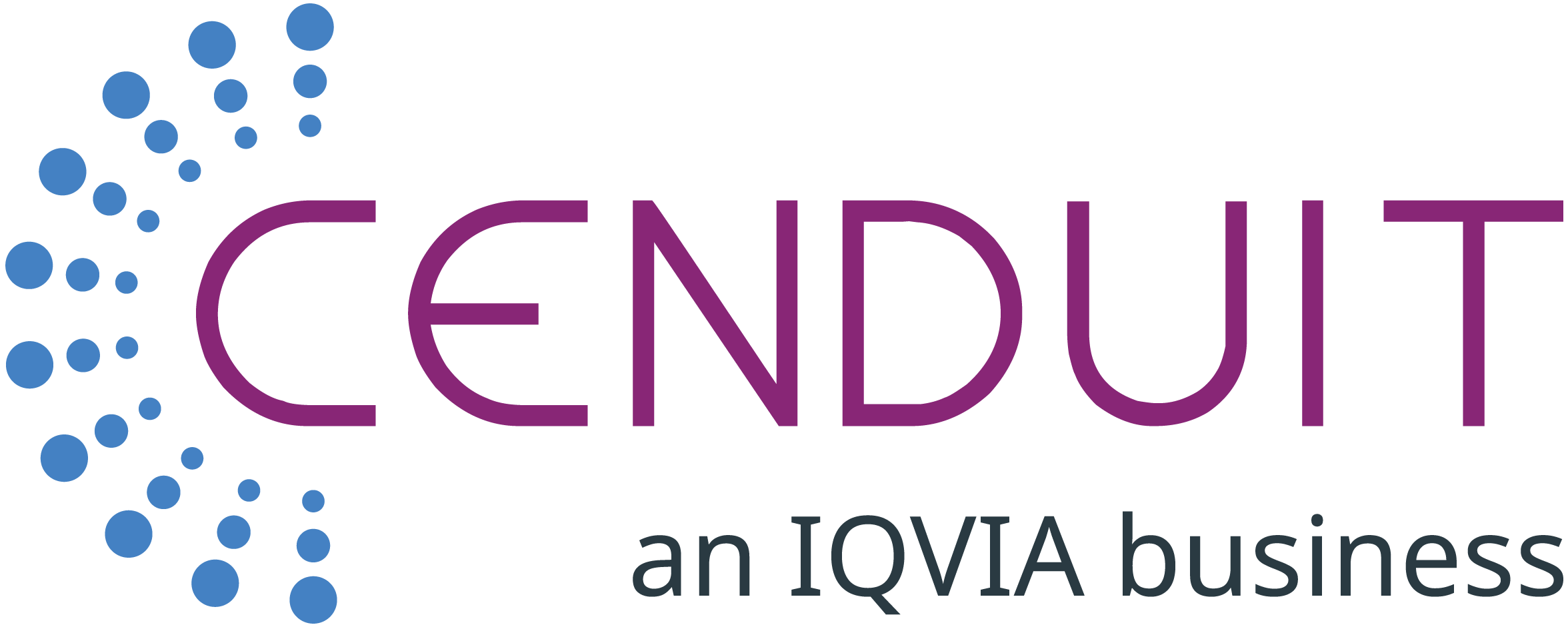Building Faster, Patient-Centric Studies in a Changing Regulatory Environment – What We Learned at IRT USA 2018
One of my favorite things about working in the eClinical and biopharma industry is the opportunity to improve the lives of patients through working in close collaboration with sponsors and other technology providers. Last month I attended the IRT USA 2018 conference in Philadelphia, where we as an industry group focused on exactly that.
Read the Whitepaper: Top Five Reasons You Need IRT Expertise, Not Just Software
IRT USA conference Chair Craig Mooney, Director of IRT at Bristol-Myers Squibb, discussed how study complexity is growing, combined with the increasing use of amendments to get studies deployed faster. He also highlighted how our industry is experiencing increased scrutiny amid the changing regulatory landscape. (Also at IRT USA, Cenduit’s Andrew Rohrbaugh, Director of Client Delivery, and Chris Gent, Associate Director of Operational and Process Excellence, discussed how to put the patient first when approaching System Change Requests. (SCRs)
In his thought-provoking keynote, among the many important topics Craig covered on the state of the industry, two themes in particular resonated with me:
1) The need for better project management – with people at the center of technology planning and study management
2) Never losing sight that the patient is at the center of everything we do
At the core of every clinical study is a team that’s the guiding force behind the technology. This underscores the importance of eClinical solutions providers working hand-in-hand with sponsors and other clinical stakeholders to identify the best way to use that technology and meet study objectives. What will get studies delivered faster and more efficiently to help patients? Exceptional service delivery that’s “all in.”
Design for Change: The New Study – Build it Quickly, Amend it Often
When I started in the biopharma industry, IRT study design didn’t begin until we had the final protocol. Now we almost always start IRT study design discussions with a draft protocol.
In this new era of designing for change, sponsors also are doing more in a single study than ever before. Instead of starting a new study, sponsors are increasingly using amendments to existing studies. This change comes from a desire to accelerate timelines and decrease the time between protocol design and first patient, so sponsors can expedite the delivery of new drugs. This acceleration requires the IRT system to be in place along with every other aspect of the study, often within 6 or 7 weeks of final protocol.
More amendments add more complexity to studies. Because we’re layering more and more complexity into studies, this puts an even heavier focus on quality to ensure patient safety. Technology providers must have the processes, flexibility and ability for critical thinking to adapt with quality, quickly when inevitable protocol changes come in.
Adaptive Studies in an Evolving Regulatory Landscape: Quality Matters
As Craig talked about changes coming from regulatory agencies, there was a palpable level of interest in the room. He discussed the increasing pressure on sponsors to do more from an oversight perspective around impact and risk analysis. At Cenduit, that’s an integral part of our quality-first approach – bringing consultative expertise to clients, making sure they completely understand the risks of study design, and ensuring the correct risk management plans are in place. Partnering and collaborating with our clients to help them proactively mitigate risk is our inherent responsibility, to help them succeed in an increasingly complex regulatory environment.
Working Together to Improve Healthcare Outcomes
Craig also made the important and an often forgotten point in our industry: sponsors, technology providers and third-party partners must have a broader understanding of one another’s perspectives. Communication throughout the study lifecycle is key. We believe building this understanding requires having a team behind every step of that communication – be it a localized global help desk team, or the core team PM leading the study. We draw on over 10 years of expertise managing thousands of globally diverse studies to better understand and customize what our client wants to accomplish. We make build recommendations with quality and flexibility built in to meet needs and adapt over the lifetime of the study. Regardless of size, our clients consistently give Cenduit high marks for our deep understanding and collective and individual expertise that transcend study size, complexity, therapeutic area and geography.
Following the IRT USA conference, what is next call to action for our industry? I would encourage us all to act with intention. To put into action the essential intersection of people, processes and technology. Whether a new regulatory development on MHRA, or expediting amendments, integrity matters – in data, quality, and in our compassion and care for the end users our technologies: the patients.
Contact us to learn how your organization can leverage our quality, innovation and expertise to build and deploy customizable, configurable studies that ensure data integrity and patient safety.
Posted by Cindie Kazmer, Senior Director, Project Management, Cenduit





